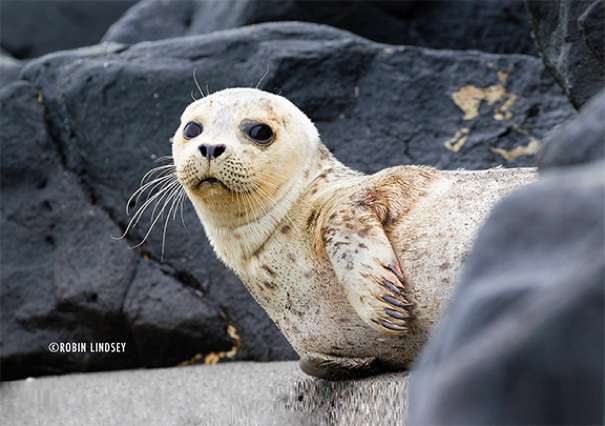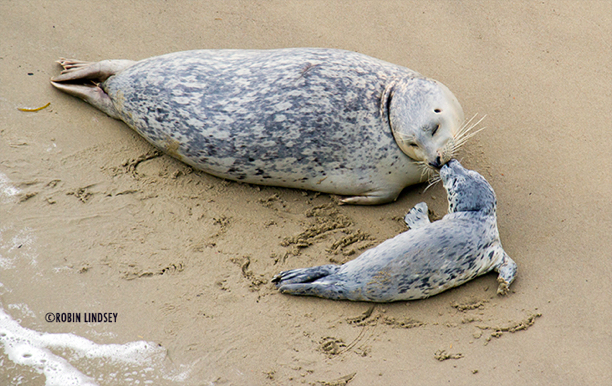Scapegoating and killing seals will not save orcas
Oct/31/18 03:24 PM

Resident orcas choose to selectively eat chinook salmon, which makes up 80% of their diet. Yes, harbor seals do indeed eat chinook. However, seals are opportunistic feeders and will consume whatever is available to them in their struggle to survive - this includes shrimp, squid, and a wide variety of fish. Puget Sound and surrounding inland waters provide their one and only food source. Seals are certainly not the sole reason the chinook populations are vanishing. Scientists admit that killing seals very likely will have little or no impact on increasing chinook stock. With a reduced presence of seals, there could be unintended consequences for other fish species, putting predator/prey relationships and nature further out of balance.

The Transient (mammal-eating) orcas, known as Bigg’s Killer Whales, have been doing their own natural cull of seals and sea lions the past several years, frequently entering and lingering in Puget Sound to feast on them. These Transients have already reduced the numbers of harbor seals in Puget Sound.
Much has also been made of, and rightly so, the devastating impact of human-caused pollution on the beloved Southern Resident orcas. However, they are not the only marine mammals who have been poisoned. Harbor seals are year-round residents and do not migrate out of our local waters. They are considered a sentinel species and, just like the resident orcas, suffer the same devastating health effects of pollution, including improperly disposed pharmaceuticals, flame retardants and other toxic chemicals that bleed into our waters from storm runoff and plastic ocean trash that seeps invisible, deadly contaminants. These toxins enter the food chain and are stored in the blubber of both orcas and harbor seals, who pass on these pollutants to their offspring thru mothers’ milk. Causing immune disorders, deformities and deaths, this tragic scenario is not just reserved for the seals and orcas. It affects the very salmon the orcas depend on as well. (Read more about the dangers of pollution here)
It is unjust to blame and punish harbor seals for humans’ bad behavior. We have laced our waters with toxins, destroyed marine habitat and have historically overfished resources - all due to human short-sightedness and, many would say, greed. Some argue that both recreational boaters and the exploding whale watch industry, dogged in their pursuit to see the Residents, are literally loving them to death and interfering with their ability to effectively forage for depleted fish stocks. While most operators are respectful, due to sheer numbers, something needs to be done.
What could make a difference? Decreasing runoff and pollution, regulating fishing, restoring salmon habitat, increasing restrictions on whale watching (including "no go” or "slow go” zones) and breaching the four lower dams along the Snake River waterway are sane and humane ways to help the chinook and Southern Residents survive. Harbor seals (and California sea lions) must not be falsely scapegoated and culled.
Humans need to accept responsibility for the repercussions of our actions. We must make sacrifices to save species, not sacrifice innocent ones.
SPEAK OUT FOR THE SEALS
Please contact the Governor’s Task Force HERE.
Let the committee members know that you are emphatically opposed to killing seals and/or preventing them from their critical, natural behavior to be able to rest and give birth onshore. Your comment can truly save seals’ lives.







